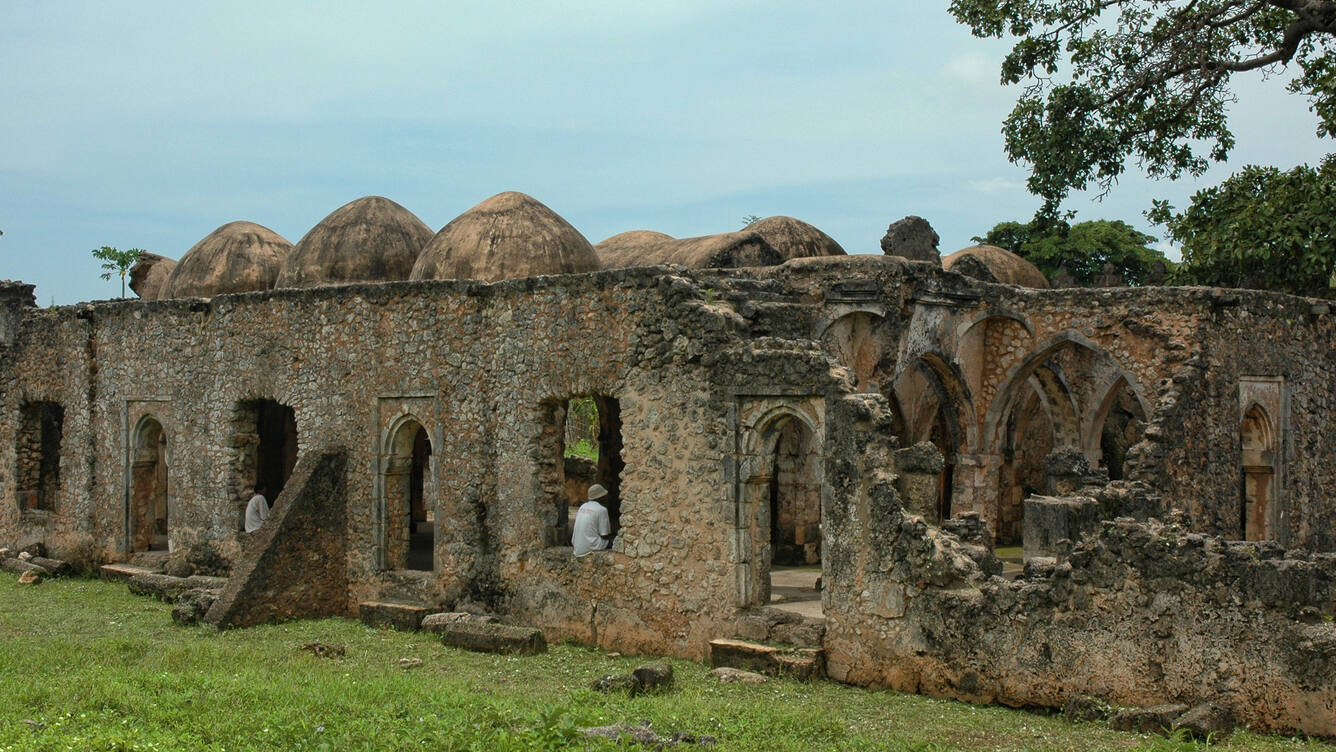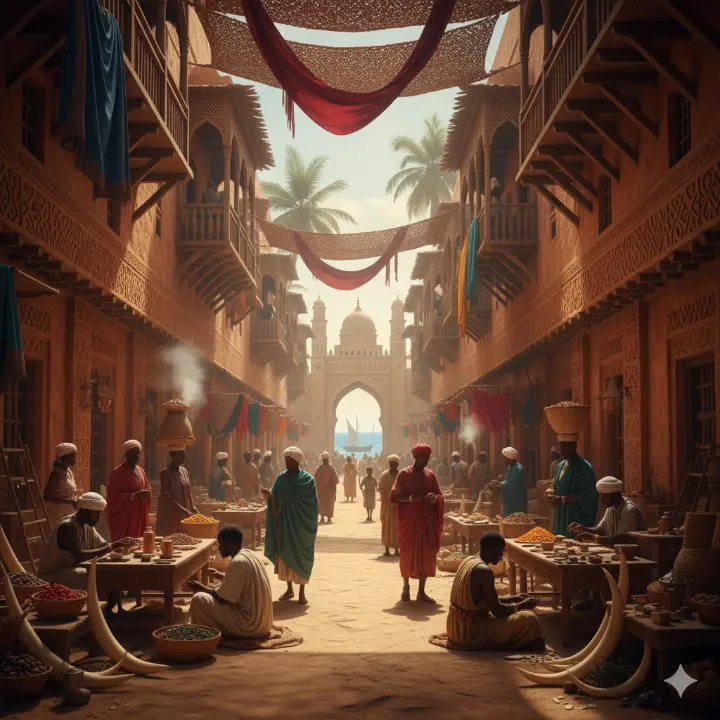In the heart of the Indian Ocean, along the eastern coast of Africa, lies the historic island of Kilwa Kisiwani, a place that once thrived as the epicentre of trade, culture, and wealth in mediaeval Africa. Its story is not just of kings and merchants; it is also the story of two young brothers, Ali ibn Bashat and Hasan ibn Sulayman, whose bold vision transformed a small coastal town into a powerful global trade hub. Their legacy holds lessons for African youth today: courage, creativity, and entrepreneurship can build empires.
 (15/03/2009) © UNESCO | Ron Van Oers
(15/03/2009) © UNESCO | Ron Van Oers
Origins: From Coastal Traders to Visionaries
The brothers were born on the Swahili Coast, part of modern-day Tanzania. The Swahili Coast at the time was a network of small trading settlements stretching from southern Somalia to northern Mozambique. Their father was a modest trader dealing in spices, ivory, and textiles, and the family was well-connected to inland trade networks that brought gold and other valuable commodities from the African interior.
Ali and Hasan grew up witnessing the movement of goods, ideas, and people along the coast. But unlike many youths of their time, they didn’t see their small town as a limit; they saw opportunity.
Ali ibn Bashat once remarked to his brother Hasan:
“Why trade only what comes to our shore? Why not control the routes themselves?”
This vision, daring for teenagers in the 11th century, would set the foundation for Africa’s first global trade empire.

The Bold Move: Acquiring Kilwa
Around the ages of 16 and 18, the brothers embarked on a bold journey along the coast. Their travels led them to Kilwa Kisiwani, a small island strategically located for maritime trade between the African interior, Arabia, and India.
The local ruler agreed to sell the island in exchange for cloth, a trade that Ali and Hasan negotiated with wit and ingenuity, offering the finest fabrics from their family’s stock. Their cleverness in securing Kilwa is one of the earliest recorded examples of creative deal-making in African history.
With Kilwa under their control, the brothers began building infrastructure for trade: warehouses, docks, and marketplaces. They established Kilwa as a secure and efficient hub for merchants arriving from across the Indian Ocean.
Building an Empire: Kilwa at its Height
Under Ali and Hasan’s leadership, Kilwa rose to prominence:
- Trade networks extended across Africa and the Indian Ocean. Gold from Great Zimbabwe passed through Kilwa’s ports, while ivory, spices, and textiles flowed in return.
- The brothers introduced minted currency, allowing for easier and more organized trade, a rare innovation in the region at the time.
- Kilwa became a center of culture, architecture, and learning, with stone-built mosques and palaces that signified the wealth and sophistication of the city.
- They cultivated relationships with inland kingdoms and foreign traders, creating Africa’s first cross-continental business ecosystem.
At its peak, Kilwa was one of the richest cities in Africa, drawing ships from Arabia, India, and even China. The brothers’ vision had turned a small island into a powerhouse of trade and innovation.
Challenges and Leadership
Ali and Hasan faced significant challenges:
- Pirate raids threatened the safety of Kilwa’s ports.
- Rival merchants sought to dominate regional trade.
- Environmental challenges, including monsoons and coastal erosion, posed threats to infrastructure.
The brothers responded strategically: they built fortified warehouses, protected trade routes, and diversified Kilwa’s connections. Their success lay in foresight, courage, and leadership, demonstrating that young people can overcome formidable obstacles with planning and ingenuity.
Legacy: Lessons for African Youth Today
Kilwa’s rise under Ali and Hasan is more than a historical curiosity; it is a blueprint for modern African youth seeking to create impact:
- Ambition knows no age: The brothers were teenagers when they started. Youth can lead and innovate.
- Boldness matters: They dared to buy an island and build a trade empire. Risk-taking can pay off.
- Creativity creates advantage: Using clever negotiation to acquire Kilwa shows the power of smart solutions.
- Networks amplify impact: Trade and collaboration allowed them to link Africa to the wider world.
- Persistence leads to legacy: Kilwa remained wealthy and influential for centuries, proving that strategic vision endures.
Kilwa Kisiwani stands today as a UNESCO World Heritage site, a reminder of Africa’s historical ingenuity. The story of Ali ibn Bashat and Hasan ibn Sulayman shows that great empires and global influence are born from courage, intelligence, and vision, not just wealth or power.
For African youth, their story is a call to action: dream boldly, act wisely, and build systems that outlast you. Just as Kilwa connected the African interior to the Indian Ocean, today’s young Africans can connect ideas, resources, and communities to shape the future of the continent.
Sources & References for Further Reading:
- UNESCO World Heritage Centre – Kilwa Kisiwani: whc.unesco.org
- World History Encyclopedia – Kilwa: worldhistory.org/Kilwa
- National Geographic – Kilwa, the abandoned East African city: nationalgeographic.com